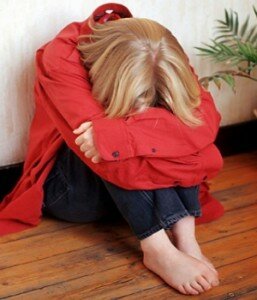What is depression?
Unfortunately depression is becoming a common condition in complicated stressful modern societies. According to surveys, every 20-25 person in developed countries is suffering from depression.
Many women could feel sad or depressed but sometimes it could be just a normal reaction to death of loved once, complicated life problems and/or struggles, dramatic injures or something else. But when depression (sadness, helpless, hopeless, worthless) last long (weeks, months) and destroy normal everyday life and damage your normal functioning, it is not normal and it already could be illness called “depression”. Depressed women usually feel sad, anxious, empty, hopeless, worried, helpless, worthless, guilty, irritable, hurt and restless.
All women experience several “ups and downs” in their lives and just for describing negative feeling, very often women use words “depressed” or “depression”. But mentioned words not always mean medical condition.
Healthy women have enough potential to react adequately to different complicated life situations and normal experiences of life shouldn’t be confused with the serious medical illnesses known as mood disorders – clinical depression, post-partum depression, bipolar disorder (manic-depressive illness), psychosis, “unipolar disorder”, etc.
According to Wikipedia, depression is a state of low mood and aversion to activity that can have a negative effect on a person’s thoughts, behavior, feelings, world view and physical well-being. Depression is not just a feeling; it is medical condition with very specific symptoms and health consequences. Depression affects our thoughts, feelings, emotional status, physical health and behavior. During depression women usually lose their interest in activities that were pleasant in past life, could experience loss of appetite or overeating (binge eating, food addiction), may have problems concentrating, remembering details and usually face problems in making decisions. Some women with depression could contemplate or attempt suicide.
Most common symptoms of depression include insomnia, excessive sleeping, fatigue, loss of energy, aches, different types of pain and digestive problems.
According to DSM-IV-TR (Diagnostic and Statistical Manual of Mental Disorders, 4th Edition, Text Revision) published by the American Psychiatric Association (APA), depression occurs when you have at least five of the following symptoms at the same time:
- A depressed mood during most of the day, particularly in the morning;
- Fatigue or loss of energy almost every day;
- Feelings of worthlessness or guilt almost every day;
- Impaired concentration, indecisiveness;
- Insomnia (an inability to sleep) or hypersomnia (excessive sleeping) almost every day;
- Markedly diminished interest or pleasure in almost all activities nearly every day;
- Recurring thoughts of death or suicide (not just fearing death);
- A sense of restlessness or being slowed down;
- Significant weight loss or weight gain.
Depression in Women
Unfortunately depression in women is very common – women are twice as likely to develop clinical depression as men. Several scientific studies documented higher rates of depression among women than among men – depression female-to-male ratio averages is 2:1.2
It was also noted that causes of depression in women and symptoms of depression in women could be different. There are several factors which contribute to the unique picture of depression in women including female hormones, social status and pressure as well as very specific responses to different types of life stressful situations (stress triggers).
It was noted that up to one in four women is likely to have different episodes (short or long, light or strong) of major depression at some point in life.
Depression in women affects the quality of life – social life, personal relationships, education, career, sense of self-worth and self-confidence or self-purpose.
Geriatric institutions mentioned that older women suffer from depression much often than older men. It was noted that depression in post-menopausal women generally occurs in women with prior histories of depression.
Depression causes
Several factors can trigger depression in women. In most cases multiple factors are responsible for development of depression in women including genetic, hormonal, biological, psychological, social, mental and emotional factors.
Women with the family history of depression could be considered as a risk group for depression development. It was noted that twins have 50% chances for depression if their brother or sister suffer from depression.
Scientists discovered that so called “major depression” is caused by imbalance of certain neurotransmitters (chemical messengers) in the brain, such as serotonin, norepinephrine and dopamine.
It was also noted that sometimes social factors could cause depression in women – persons without any social support (poor, social minorities, risk group families) also could be considered as a risk group for depression. So called “women without solutions” could easily fall in depression and attempt suicide because they just cannot handle stresses and cannot find any solutions for their life problems (social, personal, emotional, physical, etc.).
What could trigger depression in women? The answer is the list of events and/or health conditions which could happen in women life:
- Pregnancy and delivery (especially multiple deliveries);
- Infertility or miscarriage;
- Premature menopause or surgical menopause;
- Premenstrual syndrome (PMS) or Premenstrual Dysphoric Disorder (PMDD);
- Victims of rape;
- Victims of domestic and/or sexual violence;
- Family history of depression (mother, grandmother, sister, aunt);
- Oral contraception with high progesterone component.























